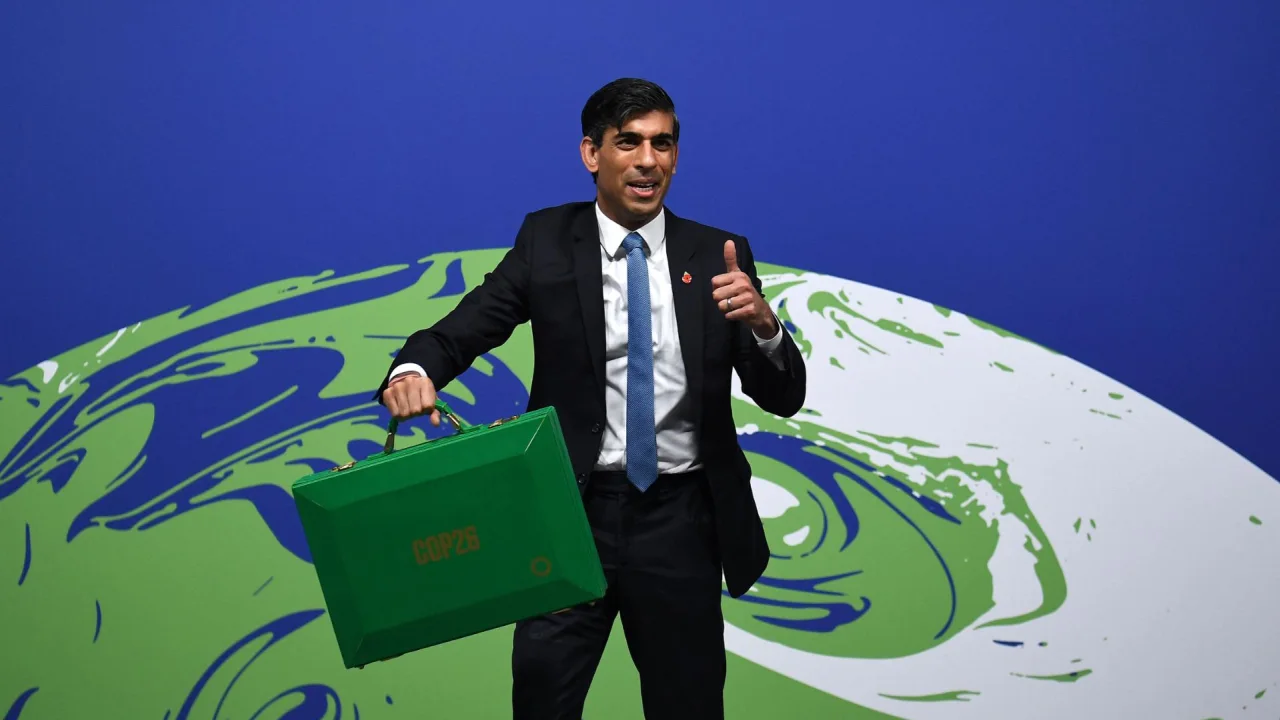Less than two years ago, the UK was at the forefront of the global fight against the climate crisis. However, with Rishi Sunak’s government facing electoral challenges, a shift in focus has occurred, and green policies have become a new battleground for political division. As the UK limps towards an election, it is expected to lose, Sunak has adopted a populist approach, used anti-green rhetoric and promoted fossil fuel development in an attempt to resonate with voters. Climate experts fear that this political opportunism could undermine the UK’s standing as a global climate leader.
A Change in Tone:
Previously, under Boris Johnson’s leadership, the UK demonstrated commitment to addressing the climate crisis during the COP26 conference. Now, Sunak’s government appears to be prioritizing division over determination, employing wedge issues such as green policies to bolster its electoral prospects. Sunak’s current assertion of a growth in oil and fuel line drilling withinside the North Sea and his review of low-traffic neighborhoods aimed at improving urban air quality have drawn criticism from environmental groups and climate experts.
A Populist Approach to Climate Issues:
Since coming into power, Sunak has sought to appeal to the public by waging so-called “culture war” battles on various issues. While facing challenges with the cost of living and declining public services, Sunak has struggled to reverse his party’s declining popularity. However, a recent narrow victory in a by-election in Uxbridge, where opposition to low-emissions zones dominated, has given Sunak hope. As a result, leading Conservatives have adopted an anti-green stance and attempted to associate the opposition Labour Party with controversial climate activists.
Challenges and Concerns:
Sunak’s populist approach to climate issues risks further dividing public opinion. Despite opposition to certain green policies like low-emissions zones, the majority of Britons still view climate change as an important issue. Sunak’s focus on divisive rhetoric may alienate voters and damage the UK’s global reputation as a climate leader. Critics within his own party have also expressed reservations about his climate policies and called for a more ambitious approach to address climate change.
Conclusion:
The UK’s position as a global climate leader is under threat as Rishi Sunak’s government shifts towards populist politics and divisive tactics. By prioritizing wedge issues like green policies, Rishi Sunak aims to gain electoral traction but risks undermining the country’s commitment to combating the climate crisis. As the UK faces an uncertain political landscape, the path to electoral success should not come at the expense of jeopardizing its global standing on climate leadership.
